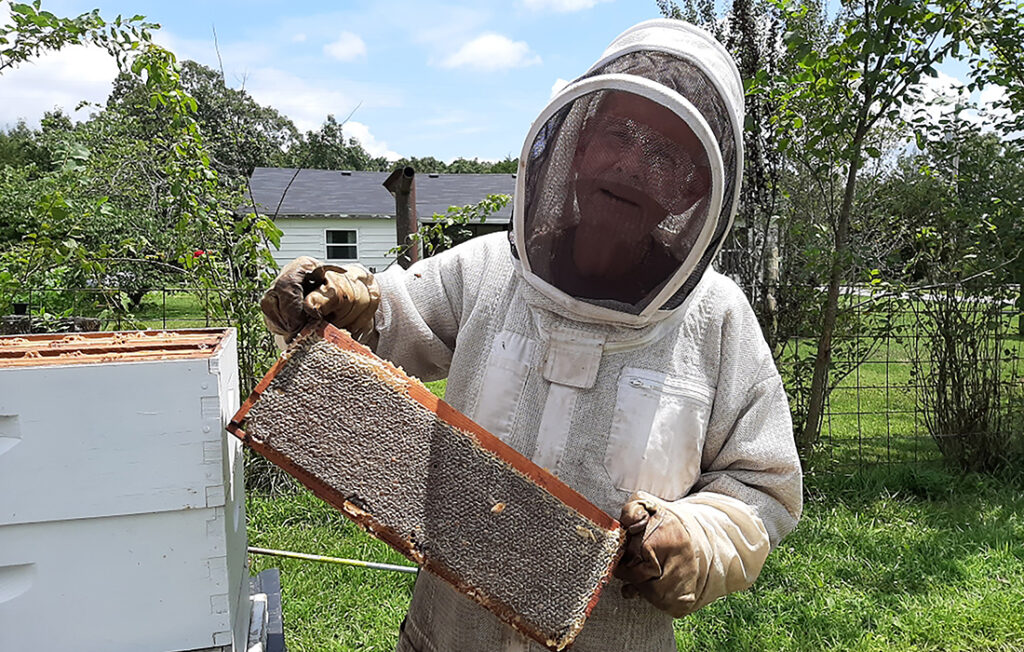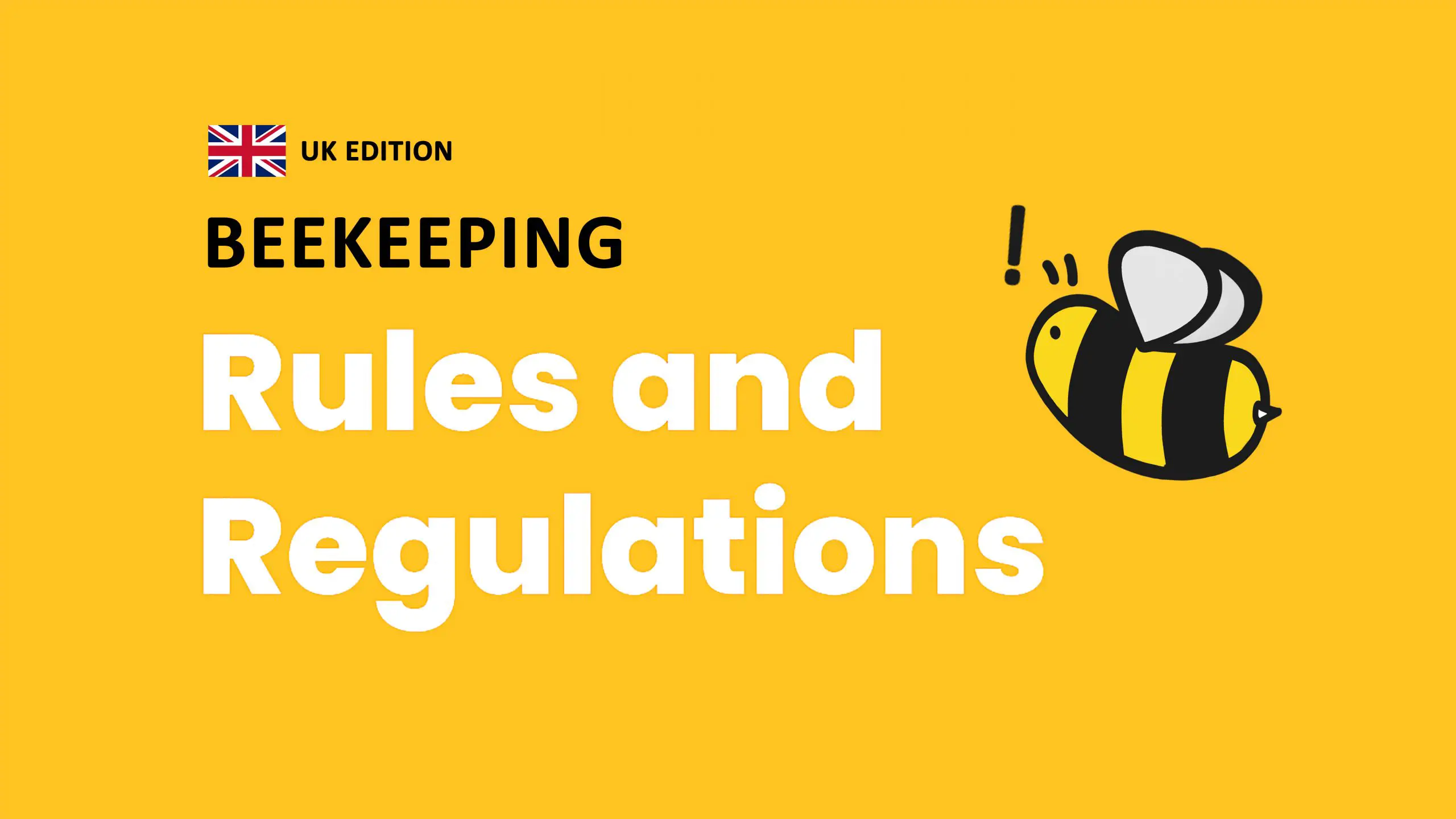
So, you’re curious about the regulations for beekeeping, huh? Well, if you’re thinking of embracing the buzzing world of beekeeping, it’s important to understand the rules and regulations that come with it. From zoning restrictions to registration requirements, there are various guidelines in place to ensure the safety and well-being of both the bees and the beekeepers. In this article, we’ll take a closer look at the essential regulations you should be aware of before starting your own beekeeping adventure. Get ready to uncover the fascinating world of beekeeping regulations!
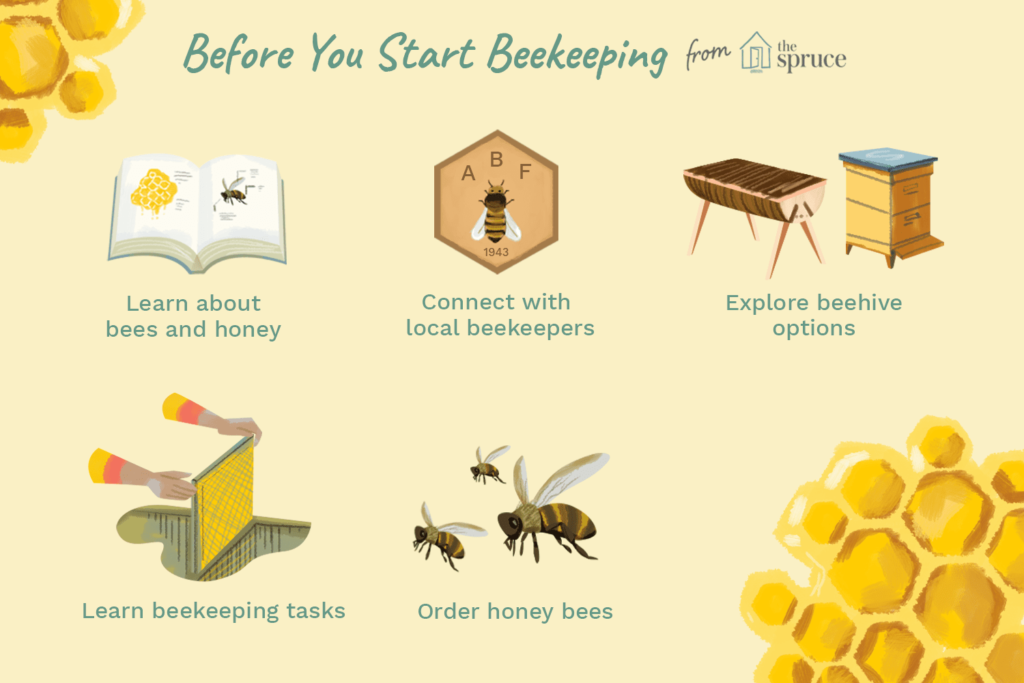
1. Local Regulations
1.1. City or County Zoning
When it comes to beekeeping, city or county zoning regulations play a crucial role in determining where and how you can keep bees. These regulations specify whether beekeeping is allowed in residential areas, and if so, under what conditions. Some areas may have restrictions on the number of hives allowed, while others may require a minimum distance from neighboring properties. It is essential to familiarize yourself with the specific zoning regulations of your locality before starting beekeeping to ensure compliance and avoid potential conflicts with your neighbors and local authorities.
1.2. Permits and Licenses
In addition to zoning regulations, you may also need to obtain permits or licenses to keep bees legally. This requirement varies depending on your location. Some cities or counties may require beekeepers to register their hives, while others may have more comprehensive licensing processes. These permits and licenses help local authorities keep track of beekeeping activities and ensure that beekeepers are knowledgeable about proper hive management and disease prevention. Be sure to check with your local government or agricultural department to determine if any permits or licenses are necessary in your area.
1.3. Hive Placement and Setback Requirements
Proper hive placement is essential not only for the well-being of your bees but also for consideration of your neighbors and local regulations. Setback requirements refer to the distance that hives must be located from property lines, buildings, and public areas. These regulations aim to prevent any potential conflicts or disturbances caused by beekeeping activities. It is crucial to adhere to these setback requirements to maintain harmonious relationships with your neighbors and avoid any legal issues.
1.4. Number of Hives Allowed
The number of hives allowed on a property is often determined by local regulations. These regulations may take into account factors such as lot size, proximity to neighboring properties, and available forage. The purpose behind limiting the number of hives is to ensure that beekeeping activities are manageable and do not pose excessive burdens on the surrounding environment or community. It is important to be aware of the maximum number of hives allowed in your area to avoid violations and maintain compliance.
1.5. Distance from Neighboring Properties
To prevent any potential conflicts or disturbances, local regulations may specify a minimum distance that hives must be located from neighboring properties. This requirement is intended to minimize the risk of bee-related incidents and to protect the well-being of individuals who may have allergies or sensitivities to bee stings. By adhering to these regulations, you can help ensure a safe and peaceful coexistence with your neighbors while enjoying the rewards of beekeeping.
2. State Regulations
2.1. Beekeeping Registration
State regulations often require beekeepers to register their hives. This registration process serves several purposes, including disease monitoring, swarm control, and the collection of valuable data for research and policy-making. By registering your hives, you contribute to the overall health and management of bee populations in your state. Additionally, registration may provide you with access to resources and support from state agricultural departments or beekeeping associations.
2.2. Inspections and Compliance
State beekeeping regulations may also include provisions for inspections to ensure compliance with certain standards and best management practices. These inspections are typically carried out by state agricultural departments or designated inspectors. By conducting inspections, authorities can assess hive health, disease management protocols, and overall compliance with state regulations. It is important to familiarize yourself with the specific requirements for inspections in your state and be prepared to comply to maintain a healthy and thriving colony.
2.3. Quarantine Laws
Quarantine laws play a crucial role in protecting bee populations from the spread of pests and diseases. These laws may restrict the movement or transport of bees, hive equipment, or certain bee products to prevent the introduction or spread of harmful pathogens or invasive species. Familiarizing yourself with your state’s quarantine laws is vital to prevent unintentional violations and to protect the health of your bees and the wider beekeeping community.
2.4. Disease Management and Reporting
State regulations often outline specific procedures for disease management and reporting in the beekeeping industry. This includes protocols for identifying and treating common honeybee diseases, as well as reporting requirements for any suspected or confirmed cases. These regulations are in place to protect bee health and prevent the further spread of diseases within local bee populations. As a responsible beekeeper, it is essential to educate yourself on disease management practices and comply with reporting requirements to contribute to the overall health of the beekeeping industry.
2.5. Beekeeper Education and Certification
Many states offer beekeeper education programs and certification courses to promote safe and responsible beekeeping practices. These programs provide beekeepers with valuable knowledge and skills to effectively manage their hives and mitigate potential risks. Some states may even require beekeepers to complete certain educational requirements or obtain certification to keep bees legally. Participating in these programs not only enhances your beekeeping abilities but also demonstrates your commitment to the well-being of your bees and the wider beekeeping community.
3. Federal Regulations
3.1. Pollinator Protection
The federal government recognizes the critical role of pollinators in agricultural production and natural ecosystems and has implemented regulations to protect these vital creatures. Federal regulations aim to promote pollinator health by regulating pesticide usage, promoting pollinator-friendly landscaping practices, and supporting research efforts. As a beekeeper, it is important to stay updated on federal regulations to ensure you are operating within the framework of national pollinator protection initiatives while also safeguarding the health and productivity of your own hives.
3.2. Labeling and Registration of Bee Medications
To ensure the safety and efficacy of bee medications, the federal government requires that these products be properly labeled and registered. This helps beekeepers make informed choices about the treatments they use and protects the health of their bees. It is crucial to only use medications approved for beekeeping purposes and to adhere to the recommended dosage and application methods outlined on the labels. By following federal regulations regarding bee medications, you can help protect your bees and contribute to overall hive health.
3.3. Imported and Used Equipment Regulations
Federal regulations govern the importation and use of beekeeping equipment to prevent the introduction or spread of pests and diseases. This includes regulations on the importation of live bees, queen bees, and hive equipment. It is essential to be aware of these regulations and obtain equipment from reputable sources to minimize the risk of introducing harmful pathogens or pests into your bee population. Additionally, proper sanitation and sterilization of used equipment before introducing it to your hives is critical to prevent the transmission of diseases.
3.4. Quarantine Exemptions and Certifications
Under certain circumstances, federal regulations may provide quarantine exemptions or certifications for specific activities related to beekeeping. These exemptions and certifications typically require adherence to strict protocols to ensure the safety and health of bee populations. Examples of such exemptions or certifications may include the movement of bees across state lines for pollination services or the importation of specific bee strains for research purposes. If you plan to engage in activities that fall under these exemptions or certifications, it is essential to understand and comply with the applicable federal regulations.
3.5. Honey Quality and Grading Standards
Federal regulations also outline quality and grading standards for honey, ensuring that the products commercially available to consumers meet certain quality benchmarks. These standards cover factors such as moisture content, flavor profiles, and absence of contaminants. As a beekeeper, understanding these standards can guide your honey harvesting and processing practices to produce honey of superior quality. Adhering to federal regulations in honey production not only benefits customers but also contributes to the reputation and success of the beekeeping industry as a whole.
4. Beekeeping Best Practices and Guidelines
4.1. Proper Hive Management
Proper hive management is essential for the health and well-being of your bees. It includes regular inspections, monitoring for pests and diseases, providing adequate food sources, and maintaining a clean and hygienic hive environment. Following best practices for hive management helps prevent colony losses, improves honey production, and promotes overall colony vitality. Educate yourself on techniques such as swarm prevention, queen rearing, and seasonal management to ensure the long-term success of your honeybees.
4.2. Pest and Disease Control
Effective pest and disease control are crucial for maintaining hive health and productivity. Beekeepers must be knowledgeable about common pests such as varroa mites and small hive beetles, as well as diseases like American foulbrood and European foulbrood. Implementing integrated pest management strategies, which may include biological, mechanical, and chemical control methods, helps minimize the impact of pests and diseases on your hives. Regular monitoring, early detection, and prompt treatment are key components of effective pest and disease control.
4.3. Pollinator-friendly Practices
Beekeepers play a vital role in supporting pollinator populations beyond their own hives. Implementing pollinator-friendly practices in your own beekeeping operations and encouraging others to do the same can have a positive impact on local ecosystems. This includes avoiding the use of neonicotinoid pesticides, planting native flowers and trees that provide pollen and nectar sources, and creating habitat for native pollinators. By adopting pollinator-friendly practices, you contribute to the conservation and diversity of pollinators in your area.
4.4. Honey Harvesting and Processing
Proper honey harvesting and processing techniques ensure the quality and safety of the honey you produce. It is important to follow guidelines for hygiene, storage, and extraction to prevent contamination and maintain the unique flavors and characteristics of your honey. Understanding the optimal timing for honey extraction, proper equipment usage, and suitable storage conditions are essential aspects of honey harvesting and processing. By adhering to these best practices, you can confidently offer consumers high-quality honey free from impurities.
4.5. Ethical Beekeeping Practices
Ethical beekeeping practices prioritize the well-being of the bees and their natural behavior. This includes methods that allow bees to thrive and express their inherent instincts, such as providing them with suitable forage, ensuring sufficient space within the hive, and avoiding practices that compromise their health or genetic diversity. Ethical beekeepers also prioritize swarm management and work to minimize the stress and disruption caused by hive manipulations. By adopting ethical beekeeping practices, you promote the health and vitality of your bees while respecting their natural behavior and instincts.
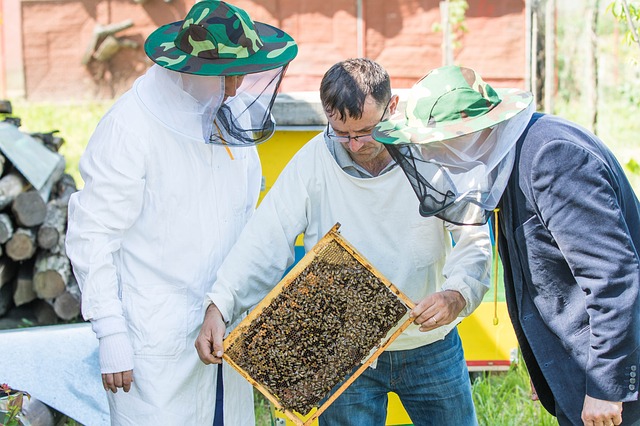
5. Safety and Health Regulations
5.1. Protective Gear and Clothing
Beekeeping involves working closely with bees, which can potentially lead to bee stings. To ensure your safety and minimize the risk of allergic reactions, it is important to use appropriate protective gear and clothing when tending to your hives. This typically includes a beekeeping suit, gloves, a veil, and protective footwear. Wearing protective gear provides a physical barrier between you and the bees, reducing the chances of being stung. Always prioritize safety when working with your bees to ensure a positive and enjoyable beekeeping experience.
5.2. Handling and Storage of Chemicals
Beekeeping may involve the use of chemicals such as varroa mite treatments and hive disinfectants. It is crucial to handle these chemicals safely and responsibly. This includes wearing appropriate protective equipment, following manufacturer instructions for use and storage, and avoiding unnecessary exposure to yourself and your bees. Properly storing chemicals away from the hive area helps prevent accidental contamination and effects on hive health. Always prioritize environmental and personal safety when working with or storing beekeeping chemicals.
5.3. Medications and Treatment
Beekeepers may need to administer medications or treatments to their hives to manage pests, diseases, or nutritional deficiencies. It is essential to carefully follow the instructions provided by the manufacturer or a qualified expert to ensure the appropriate dosage, application method, and timing. Overuse or incorrect application of medications can have detrimental effects on hive health and honey production. Always consult reputable sources and experts for guidance on medications and treatments to maintain the well-being of your bees.
5.4. Emergency Response and First Aid
Preparing for potential emergencies is an important aspect of responsible beekeeping. It is essential to have a well-equipped first aid kit readily available and to be trained in basic first aid procedures for bee stings, allergic reactions, or other accidents that may occur during beekeeping activities. Familiarize yourself with the signs and symptoms of allergic reactions and how to respond in a timely and effective manner. By prioritizing emergency preparedness and first aid, you can confidently handle any unforeseen situations and ensure the safety of yourself and others involved.
5.5. Allergen Labeling and Certifications
If you harvest and sell honey or other bee products, it is important to comply with allergen labeling requirements. Properly labeling your honey products can inform consumers about the potential presence of allergens, such as pollen or tree nut residues, which may cause allergic reactions. Likewise, obtaining certifications or adhering to recognized standards for allergen management can help assure customers that your honey is produced and processed under safe and controlled conditions. By meeting allergen labeling requirements and pursuing certifications, you demonstrate your commitment to transparency and consumer safety.
6. Environmental Considerations
6.1. Land and Forage Availability
Ensuring an adequate and diverse supply of forage for your bees is crucial for their health and productivity. Consider the availability of suitable forage plants in your local area and how they support your bees throughout the year. Planting a variety of flowering plants that provide pollen and nectar from early spring to late fall can enhance the nutrition and overall well-being of your bees. By addressing the land and forage availability aspects of beekeeping, you encourage the development of robust colonies and contribute to the preservation of local pollinator populations.
6.2. Water and Food Sources
Access to clean water is essential for bee health, especially during times of drought or when natural water sources are scarce. Ensure that your bees have a reliable water source near their hives. This can be provided through shallow containers with floating objects to prevent bees from drowning. Additionally, offering supplemental feeding with appropriate nectar substitutes during lean periods can help sustain your bees and maintain strong colonies. By addressing the water and food source requirements of your bees, you support their overall well-being and resilience.
6.3. Pesticide and Herbicide Usage
The use of pesticides and herbicides in agricultural and residential areas can have detrimental effects on bee populations. As a responsible beekeeper, it is essential to understand and address the potential risks associated with pesticide and herbicide usage in your vicinity. Communicate with neighboring farmers or gardeners to promote the responsible use of these chemicals, such as applying them during non-foraging periods or choosing more bee-friendly alternatives. By advocating for responsible pesticide and herbicide usage, you help protect the health of your bees and mitigate potential risks.
6.4. Conservation Efforts
Beekeepers have a unique opportunity to contribute to environmental conservation efforts. Creating and maintaining pollinator-friendly habitats on your property, such as planting wildflower meadows or preserving native vegetation, can support local bee populations and other pollinators. By actively participating in conservation initiatives or collaborating with environmental organizations, you can amplify your impact and contribute to larger-scale efforts aimed at protecting and restoring habitats for bees and other beneficial insects.
6.5. Natural Predators and Threats
Bees face various natural predators and threats, such as bears, skunks, or the invasion of other insect species into the hives. Implementing appropriate defensive measures, such as using electric fencing or securing hive entrances, can help deter these predators and protect your colonies. Additionally, understanding common threats, such as hive parasites or diseases, and implementing preventive measures can significantly reduce their impact on your bees. By considering the natural predators and threats to your bees, you can take proactive steps to safeguard their well-being and increase their chances of success.
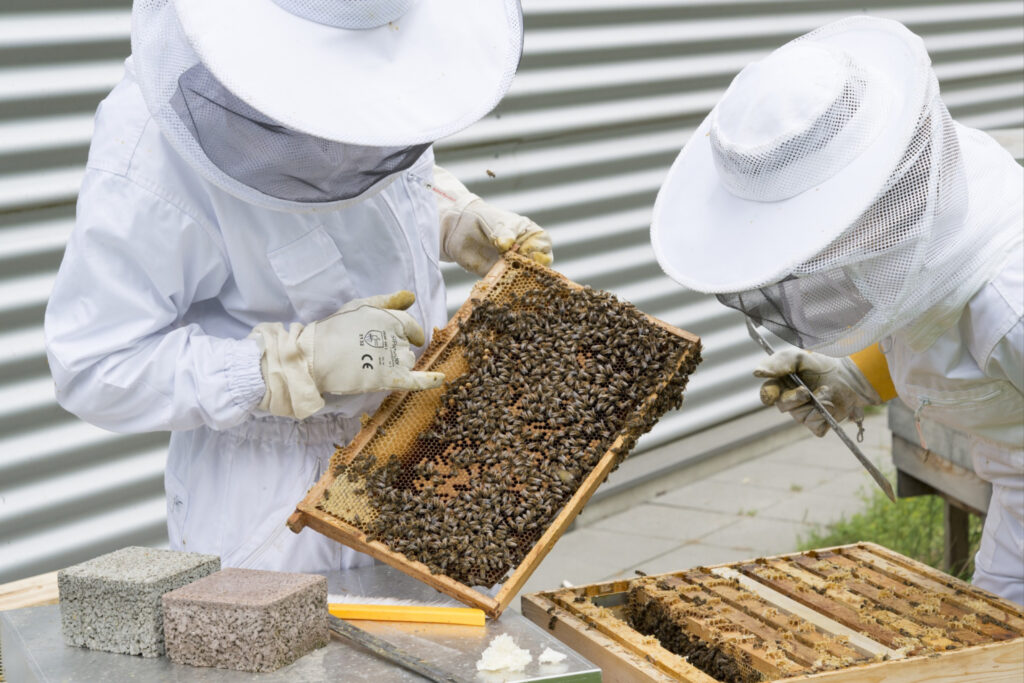
7. Beekeeping Ethics and Responsibilities
7.1. Respect and Consideration for Neighbors
Maintaining positive relations with your neighbors is essential when keeping bees. Beekeeping activities, such as hive inspections, honey extraction, or swarming events, can occasionally lead to concerns or conflicts. It is important to communicate and educate your neighbors about your beekeeping practices to address any fears or misunderstandings proactively. Minimizing disturbances, maintaining clean and well-managed hives, and taking steps to prevent swarming or bee-related incidents can help foster a harmonious relationship with your neighbors and promote positive attitudes towards beekeeping in your community.
7.2. Beehive Maintenance and Inspection
Regular hive maintenance and inspections are fundamental responsibilities of a beekeeper. Conducting routine inspections allows you to monitor hive health, check for signs of disease or pests, and ensure the overall well-being of your bees. Regular maintenance tasks, such as cleaning hive components, replacing old comb, and providing supplemental feeding when necessary, support colony vitality. By diligently performing hive maintenance and inspections, you create optimal conditions for your bees to thrive and contribute to the broader beekeeping community’s efforts in disease prevention and management.
7.3. Proper Swarming and Supersedure Management
Swarming is a natural process through which colonies reproduce, but it can also lead to concerns for beekeepers and their neighbors. Understanding swarm management techniques and taking preventive measures can help minimize the chances of your colonies swarming and to prevent the inconvenience or alarm that can be caused by swarms. Similarly, supersedure, whereby bees replace their queen, should be monitored and managed appropriately to ensure the smooth transition and overall health of the colony. By managing swarming and supersedure effectively, you can maintain the population stability and promote a calm and harmonious beekeeping environment.
7.4. Protection of Native Species
Beekeepers have a responsibility to promote and protect the health and diversity of native bee species. While honeybees are the primary focus of beekeeping, native bees also play a vital role in pollination. Avoiding practices that harm or displace native bees, such as competition for resources or habitat destruction, is an important ethical consideration for beekeepers. Planting native flowering plants and providing suitable nesting areas for native bees can contribute to their conservation and enhance overall pollinator diversity in your area.
7.5. Transparency and Education
Transparent communication and education are essential in promoting responsible beekeeping practices and fostering understanding among beekeepers, the public, and policymakers. Engaging with your local community through workshops, informational sessions, or open hive events can help dispel myths, address concerns, and provide accurate information about bees and beekeeping. By actively sharing your knowledge, experiences, and passion for beekeeping, you contribute to the broader understanding and appreciation of bees’ critical role in our ecosystems.
8. Insurance and Liability
8.1. Liability Insurance
Beekeepers should consider obtaining liability insurance to protect themselves from potential legal claims arising from mishaps or accidents related to their beekeeping activities. Liability insurance provides coverage for bodily injury or property damage that may occur as a result of your beekeeping operations. This insurance can offer financial protection and peace of mind, ensuring that you are adequately protected in case of unforeseen circumstances.
8.2. Property Damage Coverage
In addition to liability insurance, property damage coverage is essential for beekeepers who rent or own property where they keep their hives. Property damage coverage protects beekeepers against losses caused by events such as fire, theft, vandalism, or natural disasters. By ensuring you have appropriate property damage coverage, you can safeguard your investment in beekeeping equipment and infrastructure.
8.3. Worker’s Compensation
If you have employees or hired labor assisting with your beekeeping activities, it is important to consider worker’s compensation insurance. This insurance provides benefits to employees who are injured or become ill as a result of their work. Beekeeping involves various physical tasks, and worker’s compensation coverage helps protect employees and employers from the financial burden that may arise from work-related injuries or illnesses.
8.4. Product Liability
If you sell honey or other bee products, product liability insurance is recommended to protect you from legal claims arising from adverse reactions, product contamination, or other issues related to the goods you supply. Product liability coverage offers financial protection in case of lawsuits or claims resulting from the use or consumption of your bee products. It is an important consideration to safeguard your business and financial interests.
8.5. Legal Structures and Business Registration
Choosing the appropriate legal structure for your beekeeping business, such as a sole proprietorship, partnership, limited liability company (LLC), or corporation, has implications for liability, taxation, and other legal matters. Consulting with a qualified legal professional or business advisor can help you determine the most suitable legal structure for your specific circumstances. Additionally, registering your business with local or state authorities may be required, depending on your location and the scale of your beekeeping operations. Adhering to legal requirements and regulations ensures that you operate your beekeeping business legally and responsibly.
9. International Regulations
9.1. Import and Export Rules
For beekeepers engaged in international trade of bees, queen bees, or bee products, understanding import and export rules is crucial. Each country has specific regulations governing the importation and exportation of live bees and related items. Compliance with these rules ensures the prevention of the spread of pests, diseases, and invasive species across international borders. It is essential to thoroughly research and abide by the import and export rules of both your home country and the destination country to ensure a smooth and legal trade process.
9.2. Inspection and Quarantine Requirements
Inspection and quarantine requirements are common measures implemented by countries to protect their bee populations from the introduction of pests, diseases, or invasive species. These requirements may involve pre-shipment inspections, quarantine periods, or certification from regulatory authorities. Accurate record-keeping, adherence to specific inspection procedures, and collaboration with authorized inspection agencies are essential for compliance with inspection and quarantine requirements when engaging in international bee trade.
9.3. Documentation and Certification
Proper documentation and certification play a significant role in international bee trade. Document requirements may include health certificates, phytosanitary certificates, or other specific documentation from regulatory authorities. Obtaining accurate and up-to-date documentation ensures compliance with international regulations and facilitates the smooth movement of bees and bee products across borders. Collaboration with reputable and knowledgeable importers or exporters can also provide guidance on the documentation and certification processes required for international trade.
9.4. Honey Labeling and Standards
Honey labeling requirements and standards can vary between countries. Understanding these requirements is crucial for compliant exportation, as labels must meet the specific regulations of the destination country. These requirements may include information on product origin, ingredients, nutritional content, or allergens. Adhering to international honey labeling and standards demonstrates a commitment to quality, transparency, and consumer trust when participating in global honey markets.
9.5. International Trade Agreements
International trade agreements, such as free trade agreements or regional trade blocs, can impact the movement of bee products between countries. These agreements aim to remove trade barriers and facilitate economic exchange. Beekeepers involved in international trade should stay informed about relevant trade agreements to take advantage of any provisions or benefits they offer. Understanding the terms and provisions of international trade agreements helps beekeepers navigate the complexities of global markets and maximize opportunities for growth and expansion.
10. Beekeeping Associations and Organizations
10.1. National Beekeeping Associations
National beekeeping associations play a crucial role in supporting and representing beekeepers at the national level. These associations provide a wealth of resources, including educational materials, industry updates, and networking opportunities. They advocate for beekeeping interests, work to promote honeybee health, and provide valuable advice and support to beekeepers. Joining a national beekeeping association can connect you with the broader beekeeping community and offer access to industry insights and expertise.
10.2. State or Regional Beekeeping Associations
State or regional beekeeping associations are important resources for beekeepers at the local level. These associations offer opportunities for education, mentorship, and networking with other beekeepers in your area. They may organize workshops, conferences, or local events focused on various aspects of beekeeping. Joining a state or regional beekeeping association allows you to connect with beekeepers in your community, access regional-specific information, and contribute to the collective knowledge and well-being of beekeeping in your area.
10.3. Local Beekeeping Clubs
Local beekeeping clubs provide a supportive and enriching environment for beekeepers of all experience levels. These clubs often organize regular meetings, workshops, and hands-on activities, providing opportunities for learning, sharing knowledge, and building relationships with fellow beekeepers in your immediate vicinity. Local clubs can also serve as a valuable resource for connecting with experienced beekeepers who can provide guidance and mentorship. Joining a local beekeeping club offers the chance to engage with like-minded individuals, exchange ideas and experiences, and foster a sense of camaraderie within the beekeeping community.
10.4. Research Institutions and Universities
Research institutions and universities play a vital role in advancing scientific knowledge and understanding around beekeeping and honeybee health. These institutions conduct research, gather data, and publish studies related to various aspects of beekeeping, including hive management, pest and disease control, and pollination practices. Engaging with research institutions and universities through workshops, seminars, or collaborations can provide beekeepers with access to the latest research findings and evidence-based practices. By staying informed about emerging research, beekeepers can incorporate innovative techniques into their management strategies and contribute to the continuous improvement of beekeeping practices.
10.5. Online Beekeeping Communities and Forums
The internet has become a valuable tool for beekeepers to connect, share experiences, and seek advice from the global beekeeping community. Online beekeeping communities and forums provide a platform for asking questions, discussing challenges and successes, and learning from fellow beekeepers from around the world. Participating in these communities allows you to tap into a vast pool of collective knowledge, gain insights into different beekeeping practices, and find support and encouragement on your beekeeping journey. Online beekeeping communities offer opportunities to connect with experienced beekeepers, exchange ideas, and stay updated on the latest developments and trends in the field.
In conclusion, beekeeping regulations span various levels, from local to international. It is essential for beekeepers to familiarize themselves with these regulations to ensure legal compliance, promote bee health, and foster positive relationships with neighbors and the wider community. By adhering to regulations, following best practices, prioritizing safety and health, and participating in relevant associations and communities, beekeepers can contribute to the sustainability and success of their own beekeeping endeavors and the broader beekeeping industry.
